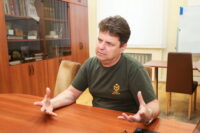
Our universe may not be so fine-tuned as to predict the existence of parallel universes. Instead, it may be able to create life in a much wider range of circumstances than it seems at first glance.
For decades, physicists have wondered why our cosmos was supposedly tuned to the development of intelligent life. It is widely believed that if the values of certain physical parameters, such as the mass of elementary particles, were changed at least slightly, it would prevent the formation of components necessary for life in the universe, including planets, stars and galaxies. But recent research, detailed in a new report by the Institute for Fundamental Issues (FQXi), suggests that intelligent life may have evolved under radically different physical conditions. The statement undermines the main argument in favor of the existence of a multiverse of parallel universes.
“According to new estimates, tuning some of these parameters to make life easier is less accurate than tuning to select a station on your radio,” said Miriam Frankel, author of the FQXi report, supported by the John Templeton Foundation. “If this is true, then the pretended fine-tuning can be an illusion,” Frankel added.
Over the last few decades, the question of fine-tuning has attracted some of the sharpest minds in physics. In studying the physical laws of the universe and accurately determining the values of physical constants, such as the mass of elementary particles and the strength of interactions, physicists have found that surprisingly small variations in these values would make the universe inanimate. This has led to a mystery: why are physical conditions seemingly adapted to human existence? Some physicists explain these coincidences by referring to the multiverse theory, which states that there are an infinite number of parallel universes, each with different physical parameters. In the context of multiverse theory, it is not surprising that humans had to evolve into one of the parallel realities in which conditions proved fit for life. Thus, the mystery of fine-tuning immediately disappears.
But other scientists were skeptical that our universe was at all set up for life. In an in-depth report by FQXi, Frankel explores the complex history of fine-tuning, including potential explanations for this — such as those from string theory and the concept of the multiverse — and evaluates suggestions for experimentally testing these explanations directly or indirectly. Then the report argues that fine-tuning is an illusion, stating that life can take a completely different form than naively imagined, and that considering that several physical parameters change at the same time, it can alleviate any obvious problems, with fine tuning. This suggests that the universe may not be so fine-tuned; it may be able to create life in a much wider range of circumstances than it seems at first glance.
Fred Adams, an astrophysicist and fine-tuning expert at the University of Michigan in Ann Arbor, says that “the developments outlined in this report emphasize that the problem of fine-tuning is more nuanced than previously discussed, with wider allowable range, physical parameters.” For example, it has often been argued that even a slight change in the balance of forces that control the atomic nucleus, or the values of the fundamental constants of nature, can affect star carbon production necessary for organic life or affect the lifespan of stars without giving them enough energy to survive.
But stellar structure equations may have more solutions than many believe, “The stars can continue to function with significant changes in fundamental constants,” said Adams, whose work is presented in the report. “Moreover, if a certain astrophysical process becomes inoperable, then (often) another process can take its place to help provide energy to the universe.”
“Fine-tuning claims have long been divided,” said David Sloan, head of FQXi’s science program, a physicist at the University of Lancaster in the UK who edited the book Cambridge University Press in 2020.
When the parameters necessary for life find themselves in suspiciously narrow areas, we seek an explanation for this either as a coincidence or as a cosmic conspiracy. The discovery that these areas may be broader or that there are other areas that allow for life reduces the need for such explanations. It may turn out that there is no conspiracy at all, “said Sloan, whose study is also presented in the report…
So, is the “finely tuned universe” an illusion?

























































Залишити відповідь